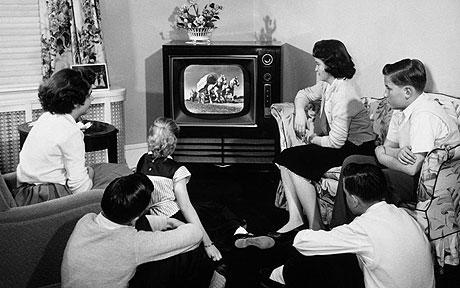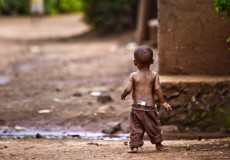- That TV was not in every home. It belonged to the wealthy neighbour, and every evening, as the sun dipped below the rooftops, we would gather in his sitting room like worshippers at a shrine of drama, comedy, and action.
Before Netflix, before Showmax, before everyone had a smartphone glued to their hand, there was a time when entertainment came in the form of a heavy, red Greatwall TV with a massive back and rabbit-ear antennas sticking out as if it was tuned into another galaxy.
That TV was not in every home. It belonged to the wealthy neighbour, and every evening, as the sun dipped below the rooftops, we would gather in his sitting room like worshippers at a shrine of drama, comedy, and action.
There were scars of TV back in the day—scars we carried with pride. If you came late, you would sit on the floor, squeezed between sweaty legs and plastic chairs. If the aerial shifted, we would all shout in unison: “Weh! Imeenda tena!” In addition, when the lights blinked—blackout!—our hearts would break collectively.
The screen lit up with shows that defined our childhoods. Tahidi High taught us that school life wasn’t just about books, but also about love triangles, discipline issues, and Mr. Tembo’s endless yelling. We imagined ourselves walking those school corridors with OJ and Tanya.
Papa Shirandula gave us laughter in spoonfuls. From Wilbroda’s sass to Njoroge’s accent, it was Kenyan humour at its finest. Charles Bukeko was not just Papa—he was our uncle, our dad, our neighbour.
Read More
Vioja Mahakamani? That courtroom was more real than the real courts. Prosecutors and defendants engaged in hilarious tug-of-wars, and the Judge and the accused, with their amusing expressions, were pure gold.
Then there was Wrestling. Yes, WWE! We truly believed John Cena could beat ten men. Boys tried RKO moves on each other in dusty compounds, yelling “You can’t see me!” before landing on a mattress or the floor.
TV was not just entertainment. It was a ritual, a social event, a bonding experience. Today, we have smart TVs, but somehow, nothing beats the magic of crowding around a red Great Wall TV, listening to static, and waiting for “Coming up next...”
Those were the days—the golden days of Kenyan television.












